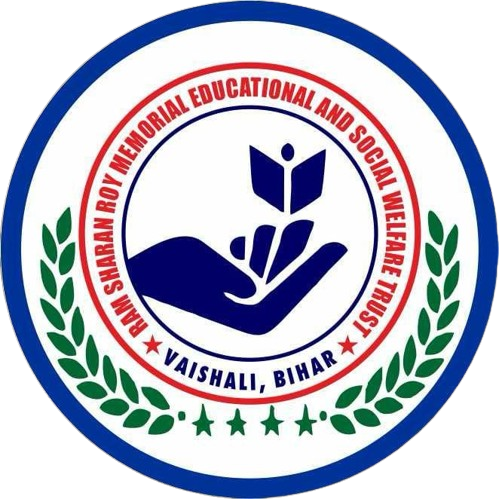Intermediate In Science
At RSRGOI we provide Intermediate in Science” Which refers to the two-year higher secondary education program following the completion of 10 years of primary and secondary education. It encompasses classes 11 and 12, focusing on subjects related to the physical, biological, and mathematical sciences. This program is designed to provide students with a robust foundation in science, preparing them for undergraduate studies and various scientific and technical careers.
Career Opportunities After Intermediate in Science:
- Higher Education: Pursue undergraduate courses like B.Sc. (Physics, Chemistry, Biology), Engineering, Medicine, and other science-related fields.
- Professional Careers: Research scientist, medical professional, engineer, environmentalist, data analyst, and more.
Skills Developed
- Analytical Skills: Ability to solve complex problems and conduct experiments.
- Technical Skills: Proficiency in scientific techniques and use of laboratory equipment.
- Research Skills: Conducting experiments, analyzing data, and interpreting results.
- Mathematical Skills: Application of mathematical concepts to solve scientific problems.
The Intermediate in Science curriculum provides a comprehensive foundation in scientific principles and prepares students for further studies in a variety of technical and scientific disciplines. It also helps develop critical thinking, problem-solving skills, and a strong understanding of the natural world.
The Intermediate in Science, covering the 11th and 12th grades, is a pivotal stage in a student’s educational journey. This program is crucial for several reasons, influencing both academic and career paths. Here’s an overview of its importance:
1. Foundation for Higher Education
- Preparation for Advanced Studies: Intermediate in Science lays the groundwork for pursuing higher education in fields such as engineering, medicine, pure sciences, technology, and research. It equips students with essential knowledge and skills needed for undergraduate courses and competitive exams.
- Specialization: It helps students identify their areas of interest and specialization, whether in physical sciences (like physics and chemistry), biological sciences (like biology and biotechnology), or applied sciences (like engineering and medicine).
2. Development of Critical Thinking and Problem-Solving Skills
- Analytical Skills: The curriculum fosters critical thinking by encouraging students to analyze complex scientific problems, conduct experiments, and interpret data.
- Problem-Solving Abilities: Through mathematical calculations, laboratory experiments, and theoretical studies, students develop strong problem-solving skills that are applicable in various fields.
3. Enhancement of Technical and Practical Skills
- Laboratory Skills: Hands-on experiments and practical work in subjects like physics, chemistry, and biology help students acquire technical skills in using scientific equipment and conducting experiments.
- Mathematical Skills: Advanced mathematics topics are integrated into the science curriculum, enhancing students’ ability to apply mathematical principles to scientific problems.
4. Preparation for Competitive Exams
- Entrance Exams: The rigorous training in core subjects prepares students for competitive entrance exams like JEE (for engineering), NEET (for medical), and various other national and international assessments.
- Standardized Tests: A solid understanding of science and mathematics helps students perform well in standardized tests that are often part of the admission process for higher education institutions.
5. Development of Research and Analytical Abilities
- Scientific Research: Exposure to scientific research methods and experimental techniques prepares students for future research roles in academia, industry, or scientific institutions.
- Data Interpretation: Students learn to analyze and interpret data, a skill valuable in research, industry, and various scientific fields.
6. Career Opportunities
- Diverse Fields: An intermediate education in science opens doors to a wide range of careers, including engineering, medicine, environmental science, data science, biotechnology, and more.
- Professional Paths: It prepares students for technical and scientific professions, such as research scientists, engineers, doctors, and environmental consultants.
7. Understanding of the Natural World
- Scientific Knowledge: Students gain a deeper understanding of natural phenomena, from the fundamental principles of physics and chemistry to the complexities of biological systems.
- Informed Citizenship: A solid scientific foundation helps students make informed decisions about health, environment, and technology in their personal and professional lives.
8. Encouragement of Innovation and Creativity
- Innovation: Exposure to scientific principles and problem-solving methods encourages innovative thinking and creativity, essential for advancements in technology and science.
- Creative Solutions: The ability to approach problems from a scientific perspective fosters creativity in developing new solutions and technologies.
9. Personal Growth and Discipline
- Academic Rigor: The challenging curriculum helps students build discipline, resilience, and perseverance, which are valuable traits in both academic and professional settings.
- Self-Discovery: It provides an opportunity for students to explore their interests in science and technology, guiding them toward their career aspirations.
10. Contribution to Society
- Scientific Contributions: By pursuing careers in science, technology, engineering, and medicine, students contribute to advancements that can improve quality of life, address global challenges, and drive economic growth.
- Informed Decision-Making: Scientific literacy enables individuals to make informed decisions about issues like climate change, public health, and technology.
Overall the Intermediate in Science is fundamental in equipping students with the knowledge, skills, and attitudes necessary for success in higher education and professional careers. It fosters critical thinking, technical proficiency, and a deep understanding of the natural world, laying a solid foundation for future academic and professional achievements.



